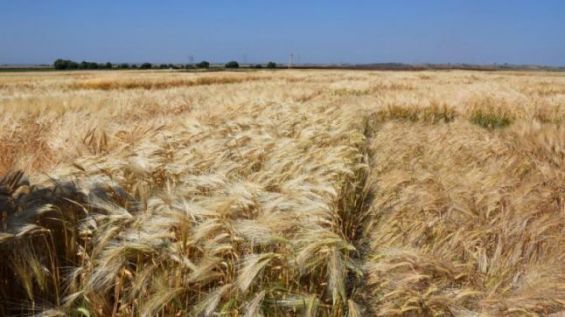Spring drought is expected to curb the 2019 wheat and cereal production prospects in Morocco, according to a country brief conducted by the Food and Agriculture Organization of the United Nations (FAO).
Made public on Tuesday, May 21, the review reveals that weak rainfalls would affect the harvesting and production of wheat in the Kingdom. «Harvesting of the 2019 winter grains will start in the second half of May and production prospects are not favorable», FAO said.
To the UN body, rainfall deficits in the period between January and March did harm to the growth and «decreased yield potential, particularly in the western and northern part of the country». Although, it was raining in April in the Kingdom, that was not enough to recover production.
Giving more details, FAO indicates that the low rainfall amounts has pushed farmers to do without plant materials and fertilizers, which might further affect production.
Wheat imports to increase in 2019/20
Indeed, the Moroccan government’s preliminary forecasts suggest that cereal production in 2019 will reach 6.4 million tons, almost one-third lower than 2018 when it was at 10.5 million tons. Meanwhile, the same forecasts indicate that wheat production for the current year is expected to drop from 7.3 million tons to 4.9 million tons.
Limited production for 2019 will have an impact on the country’s imports. According to the UN agency, Morocco, which relies on wheat imports to cover its domestic needs, will see them increase in 2019 and 2020.
FAO expects Morocco’s wheat imports to increase from 3.3 million tons in 2018 to about 4.7 million tons in 2019 to «cover the shortfall in domestic production». Meanwhile, the UN body reports that cereal import requirements might reach 8.2 million tons in 2019/20, 30 percent more than what was registered in 2018/19.
«Due to the excess milling capacity in the country, limited quantities of wheat flour, couscous and pasta are exported to neighboring countries», FAO said.
In addition to the forecasts related to production and imports, FAO indicated in its review that food price inflation in Morocco remains low. The last data available and quoted by FAO show that in March 2019 food price inflation recorded a 2.7 percent decrease on a yearly basis.
«In spite of the country’s high import dependency rate, the impact of the changes in international prices on domestic prices is mitigated by government subsidies», FAO concluded.





 chargement...
chargement...













